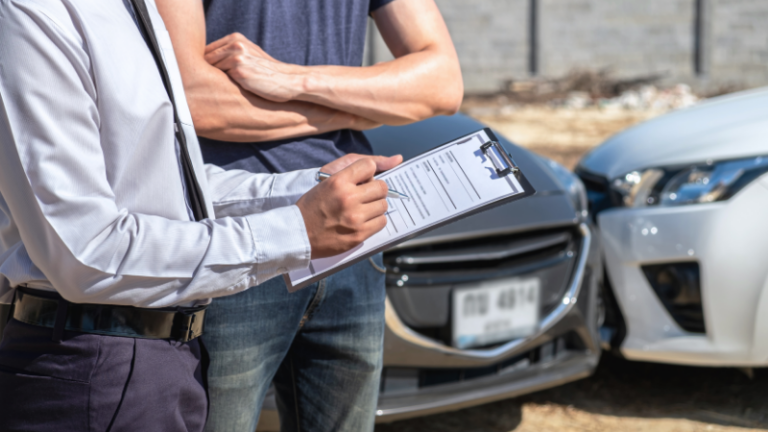Understanding the intricacies of car insurance in Ontario can be challenging, especially when considering driving someone else’s vehicle. People often wonder whether they need their own insurance to take the wheel of a friend’s or family member’s car. In Ontario, the vehicle itself carries the insurance, not the individual driver. This means if you have permission to drive a car, are not listed as an excluded driver, and possess a valid driver’s licence, you typically do not need separate insurance.
However, it’s important to be aware that specific terms might apply, such as the nature of use being incidental rather than regular. If you plan to drive another person’s car frequently, it’s advisable for them to add you as a listed driver on their insurance policy to ensure full coverage. This precaution can help prevent potential complications if an accident occurs.
Understanding these nuances emphasizes the importance of consulting reputable insurance providers for tailored advice. Surnet offers insights into ensuring you’re adequately covered while driving another’s vehicle for those seeking reliable guidance in Ontario. Exploring available insurance options with experts can provide peace of mind while on the road.
Understanding Insurance Requirements In Ontario
In Ontario, driving someone else’s car involves understanding the insurance requirements to ensure both the driver and the owner are adequately protected. It is vital to know when you are covered under the existing insurance policy and when additional coverage might be necessary.
When Are You Covered?
In Ontario, if someone has a valid driver’s license and the car owner’s permission, they can typically drive the owner’s car under the owner’s insurance policy. This means the insurance policy on the vehicle usually provides coverage in case of an accident or damage. However, it is crucial for the named policyholder to be aware of any specific terms laid out by their insurance provider since each company might have different conditions.
Insurance policies generally cover occasional drivers, which refer to individuals who do not regularly drive the car. It is important for the car owner to notify their insurance company when planning to allow someone else to drive their vehicle frequently. Doing so ensures there are no misunderstandings or potential claim rejections. Checking the fine print of the insurance policy is always a smart move to identify the level of coverage extended to other drivers.
When You Might Need Additional Coverage
Additional coverage might be necessary in situations where someone drives another person’s car regularly. Insurance companies may require that frequent drivers be added to the policy as secondary or occasional drivers to maintain coverage legitimacy. Failure to do this could result in coverage issues if a claim is necessary after an accident.

Car owners and drivers should discuss potential scenarios with their insurance provider to determine if existing coverage suffices or if extra endorsements, such as a “non-owner policy,” might be needed. Non-owner car insurance could be a beneficial choice for individuals who drive cars they do not own, offering liability protection that’s not covered by the vehicle owner’s policy. Ensuring the appropriate insurance measures are in place will provide peace of mind and financial protection.
Factors That Affect Insurance Costs
Understanding the factors that impact insurance costs is essential when driving someone else’s car in Ontario. Important considerations include seeking expert advice and the implications of unlicensed drivers in accidents. Navigating these aspects can ensure you make informed decisions.
How Consulting with Professionals Can Help
Speaking with insurance professionals is crucial for optimizing your insurance costs. They have deep industry knowledge and can offer personalized solutions that align with individual needs and legal requirements. Professionals can guide adjustments to your existing policies that may result in significant savings.
Insurance brokers, for instance, can compare different policy options and find the great fit for one’s budget and coverage needs. Utilizing these services can help access tailored insurance solutions that may not be prominent otherwise. When engaging with such experts, individuals can benefit from reduced premiums and better protection.
How Does Insurance Coverage Work If An Unlicensed Driver Is Involved In An Accident In My Vehicle In Ontario?
In Ontario, insurance coverage becomes complex if an unlicensed driver gets into an accident using your vehicle. Generally, insurance policies do not cover damages if a person operates the vehicle without a valid driver’s license. This lack of coverage can lead to legal and financial consequences for the vehicle owner.
Such incidents may result in the policyholder covering the out-of-pocket damage costs. Vehicle owners should verify the driver’s licensing status before lending their cars to avoid this. Engaging with professionals like those at Surnet can provide clarity on these intricacies, ensuring that drivers are well-prepared and adequately protected.
Conclusion on Insurance for Driving Others’ Cars
Driving someone else’s car without proper insurance can have significant legal and financial consequences in Ontario. Car insurance is tied to the vehicle rather than the individual driver. If an accident occurs, the vehicle owner could be held liable if the driver is not covered by their insurance policy.
To ensure that another person can drive your vehicle legally, they need to be listed on your insurance policy. Whether someone is borrowing the car occasionally or using it regularly, it’s crucial to confirm that they are covered under the insurance terms.
Drivers interested in operating someone else’s vehicle should discuss their intentions with the car owner and analyze the insurance policy to ensure compliance with Ontario’s legal requirements. Gaps in coverage can lead to costly fines or even more severe penalties.
In some cases, non-owner insurance coverage may be an option for those who frequently borrow vehicles from friends or family. It’s advisable to consult with an insurance professional to explore the great solutions for each unique driving situation. This proactive step helps avoid potential complications and ensures peace of mind for both the owner and the driver.
Frequently Asked Questions About Driving and Insurance in Ontario

Driving someone else’s car in Ontario raises several common questions concerning licensing, insurance requirements, and potential consequences of accidents. Understanding these individual scenarios can help drivers make informed decisions when borrowing or lending vehicles. It’s important to know these details in the context of Ontario’s specific legal framework.
Can A G2 Licence Holder Legally Drive Another Person’s Car In Ontario?
Yes, a G2 licence holder can legally drive another person’s car in Ontario. They must have the car owner’s permission, and the vehicle should be insured. The G2 driver’s own licence restrictions apply, such as the graduated licensing conditions. These include having no alcohol in their blood and adhering to passenger and nighttime driving limitations.
What Are The Implications If Someone Has An Accident While Driving My Car In Ontario?
If an accident occurs while someone else is driving your car, the car owner’s insurance is typically the first to cover damages. The accident may affect the owner’s insurance rates due to possible claims on the policy. Ensuring that anyone borrowing the vehicle is a competent driver with the necessary permissions to minimize risks is crucial.
Does Age Affect The Ability To Drive Someone Else’s Car In Ontario?
Age itself does not directly affect the ability to drive another person’s car in Ontario, provided the driver holds a valid licence. Individuals need to adhere to any specific conditions of their licence type. Young or inexperienced drivers might face higher insurance premiums, which is a factor to consider when lending a car to a younger driver.




